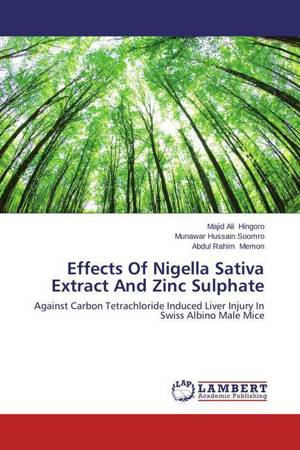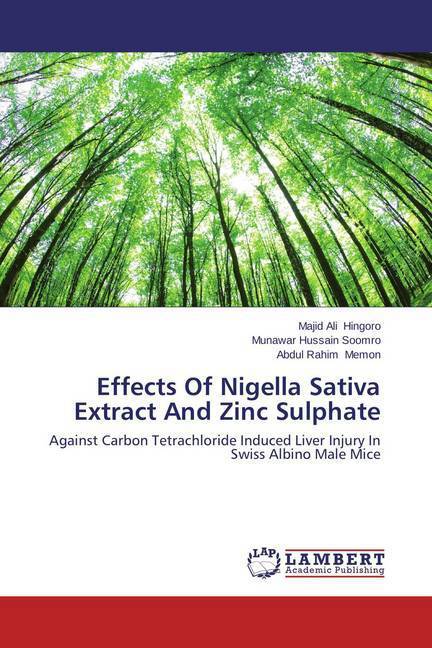
Bedankt voor het vertrouwen het afgelopen jaar! Om jou te bedanken bieden we GRATIS verzending (in België) aan op alles gedurende de hele maand januari.
- Afhalen na 1 uur in een winkel met voorraad
- In januari gratis thuislevering in België
- Ruim aanbod met 7 miljoen producten
Bedankt voor het vertrouwen het afgelopen jaar! Om jou te bedanken bieden we GRATIS verzending (in België) aan op alles gedurende de hele maand januari.
- Afhalen na 1 uur in een winkel met voorraad
- In januari gratis thuislevering in België
- Ruim aanbod met 7 miljoen producten
Zoeken
Effects Of Nigella Sativa Extract And Zinc Sulphate
Against Carbon Tetrachloride Induced Liver Injury In Swiss Albino Male Mice
Majid Ali Hingoro, Munawar Hussain Soomro, Abdul Rahim Memon
Paperback | Engels
€ 39,45
+ 78 punten
Omschrijving
Carbon tetrachloride (CCl4) is considered as one of the environmental pollutants and is well known for its hepatotoxic effect. Antioxidants or free radical scavengers are very important in protecting the living cells against any damage induced by free radicals which are produced continuously in cells either during phagocytosis or accidentally as by-product metabolites. The balance of oxidant-antioxidant system must exist in the cell while the disturbance of antioxidant-prooxidant balance causes oxidative stress. N. sativa a very famous herbal black seeds commonly named as Kalongi in South Asia and Black cumin in western world. Thymoquinone (TQ), the main constituent of the volatile oil from Nigella sativa (N. sativa) seeds, is reported to possess strong anti-oxidant properties. Zinc playing a very important and a dual role, as metabolic machinery and in defense against reactive oxygen species. So the aim of this study was to evaluate the hepatoprotective effects of Nigella Sativa and Zinc Sulphate.
Specificaties
Betrokkenen
- Auteur(s):
- Uitgeverij:
Inhoud
- Aantal bladzijden:
- 60
- Taal:
- Engels
Eigenschappen
- Productcode (EAN):
- 9783659589133
- Uitvoering:
- Paperback
- Afmetingen:
- 150 mm x 220 mm

Alleen bij Standaard Boekhandel
+ 78 punten op je klantenkaart van Standaard Boekhandel
Beoordelingen
We publiceren alleen reviews die voldoen aan de voorwaarden voor reviews. Bekijk onze voorwaarden voor reviews.









